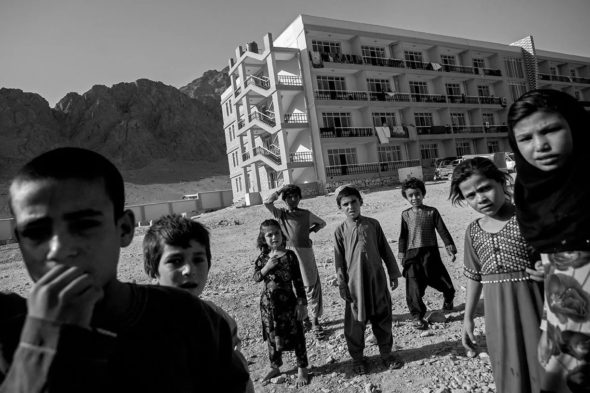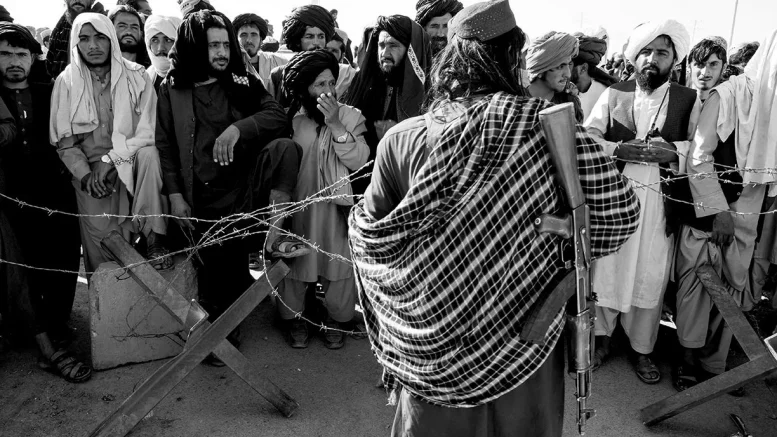By Gabby Alfveby
It’s been more than a year since the Taliban takeover of Afghanistan after the U.S. pulled the rest of its troops out, leaving many of the Afghan people and the country devastated by harsh conditions, war, and an authoritarian regime. But Afghan-Americans, Madiha Zahir and her mother Sheema Zahir, say Afghanistan and its people face too many false and negative stereotypes, and that women’s rights are under attack. In this series of stories, the Zahirs offer insights to help others understand their country, culture and the challenges everyday Afghans still face.
It marked a day of betrayal, hurt and violence. August 30, 2021 seemed like a normal summer day to most Americans, but to Afghan Americans, it was when the United States Armed Forces decided to withdraw from Afghanistan, leaving everything behind; machinery, weapons, tools.
The U.S. decided to pull out of Afghanistan in order to let Afghan people decide what government they wanted instead of forcing democracy on them.
This gave the hiding members of the Taliban a signal to begin the takeover they have been longing for for a couple decades.
Many Afghans were disappointed about the actions that the U.S. chose.
“The experience was just something I didn’t expect to make me so upset because it was avoidable,” Zahir said. “I think that’s what the whole issue is that this, it, didn’t need to happen that way and I just didn’t understand how this country who is at the top in its military and its international presence…we’re at the top of the food chain and yet this is the kind of disastrous making that is coming out of the current administration.”

Afghan people were shocked about how suddenly the U.S. left Afghanistan while also leaving all their machinery and equipment.
Madiha Zahir, an Afghan American, didn’t expect the U.S. to pull out of Afghanistan so quickly.
“I heard about the troops being withdrawn and I thought it would be in phases. I didn’t realize that it’s going be an overnight thing because that doesn’t seem like the most competent strategy,” Zahir said.
Zahir said she never saw something like the recent Taliban takeover before.
“I moved back to Florida from Maryland after graduating law school and it was within that month in August where literally over a span of less than five days, it was like city after city and it was crazy. I’ve never seen anything like it,” Zahir said.
Afghan people weren’t only shocked but also upset with the event that took place. Some Afghan Americans have lost some hope in the government and the voting system due to how the U.S. handled this situation.
“I didn’t imagine that this is what was going to come out of it,” Zahir said. “It has actually turned me; the biggest, the greatest, negative effect this has had on me beyond just seeing my own country kind of crumbling in front of an eyes.”
When the U.S. left Afghanistan, it caused chaos, especially in Kabul.
Adam Rountree, a photojournalist, was in Afghanistan trying to capture what life was life before the Taliban when the takeover began.

“It was hard. Things were total chaos for the first few days and weeks. Going from one province of Afghanistan was tricky as different areas were controlled by different leaders. One might have let you pass while next would not,” Rountree said.
The Kabul airport was filled with panic according to photojournalist Rountree.
“Things in Kabul, the capital, were extremely tense as hundreds and thousands of Afghans were converging on the airport in hopes to leave the country. The perimeter of the airport was a tense standoff between International peacekeepers, Afghan and Taliban soldiers. Afghan citizens and international citizens were stuck in the middle with little to no clear information on how to exit the country,” Rountree said,
Afghan people, thousands of them would rush to the gates of the airport every day in order to try and escape Rountree said.
“Some with suitcases full of possessions, some with just the clothes on their backs and their children,” Rountree said.
Afghan people are still feeling the effects and are suffering financially.
Sheema Zahir, Madiha Zahir’s mother and an Afghan native, is concerned about the financial problems in the country she will always call home.
“There’s a lot of people suffering in Kabul. There’s no money. There’s no work. There’s no jobs,” Zahir’s mother said.
Afghanistan is safer than it was in 2021 but Afghan’s are still struggling and living in fear as they continue to feel the after effects.
“It is unfortunate that when the Afghan people needed international support and intervention the most, it never came. The pullout of armed forces from Afghanistan was poorly planned and executed to say the least. So much money and lives were wasted over the years,” Rountree said.
Read more from the series on Afghanistan:




Be the first to comment on "Afghanistan: Abandoned"